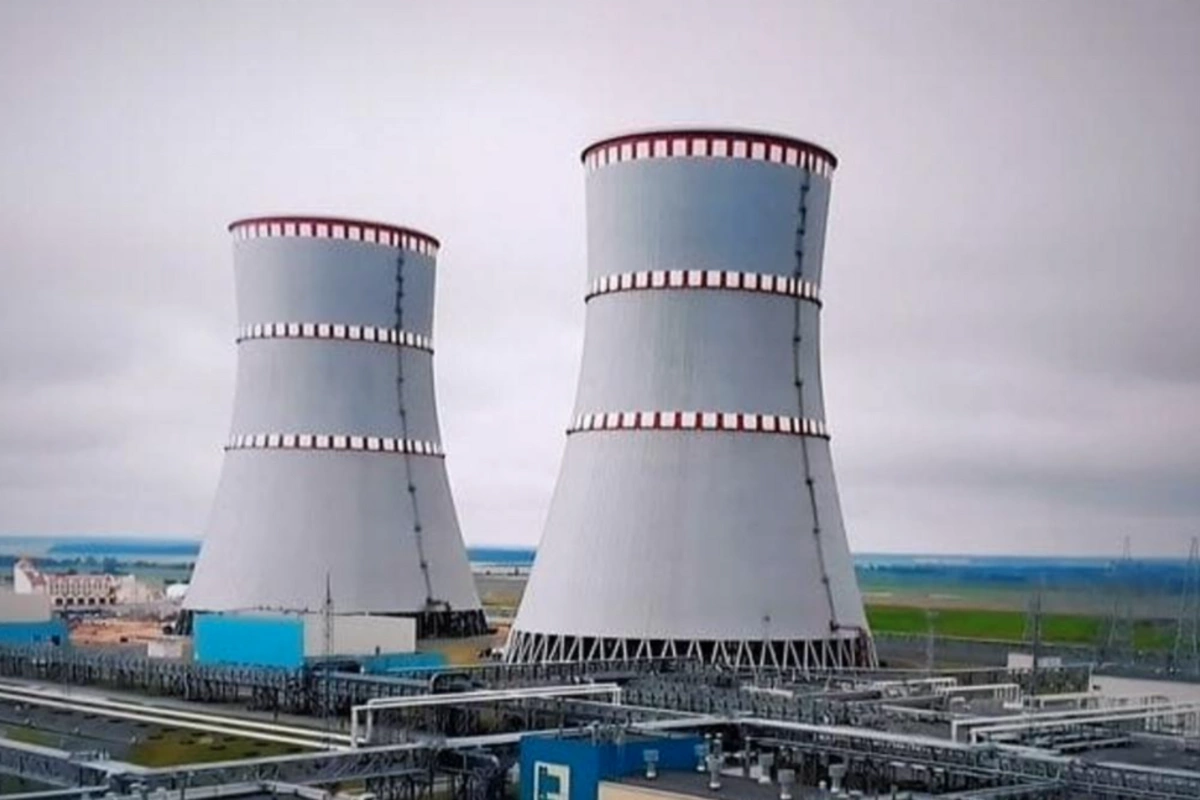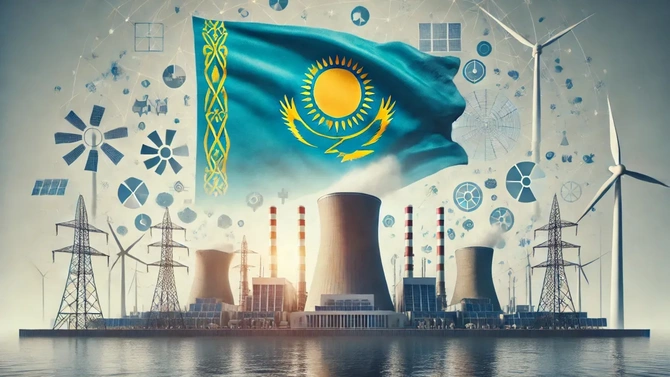
For the NPP construction, Kazakhstan is considering several potential nuclear technology suppliers: South Korea’s KHNP, China’s CNNC, Russia’s Rosatom, and France’s EDF.
Photo credit: Kazakh Energy Ministry.
Kazakhstan is making a significant stride in the development of nuclear energy, leveraging the world’s largest uranium reserves to strengthen its energy security and reduce its reliance on traditional fuel sources. Recent discussions in Seoul between Kazakhstan’s Minister of Energy, Almas Satkaliyev, and representatives of South Korean nuclear companies have marked the beginning of a new phase. They discussed forming an international consortium to build Kazakhstan’s first nuclear power plant (NPP), enabling the country to develop its nuclear energy capacities.
In October 2024, Kazakhstan held a historic referendum on the construction of an NPP, where a majority of citizens expressed their support for this initiative. President Kassym-Jomart Tokayev emphasized the importance of establishing and managing the nuclear power plant by an international consortium that includes companies with global experience and advanced technology. This approach ensures the transfer of modern knowledge and technologies to Kazakhstan, mitigating potential risks and ensuring a high level of safety for the future plant. Public support is also a vital factor for the project’s successful implementation.
For the NPP construction, Kazakhstan is considering several potential nuclear technology suppliers: South Korea’s KHNP, China’s CNNC, Russia’s Rosatom, and France’s EDF. The South Korean company Korea Hydro & Nuclear Power (KHNP) has expressed interest in supporting the Kazakhstani project, a commitment that was particularly evident in recent negotiations. A partnership with South Korea appears especially promising given its extensive experience in NPP construction and high safety standards. South Korean companies have successfully completed nuclear plant projects in other countries, making cooperation with them strategically advantageous for Kazakhstan, offering access to advanced technology and boosting project confidence.
The site selected for the future NPP is in the village of Ulken in the Zhambyl district of the Almaty region, where experts believe the conditions are optimal for the construction and operation of the plant. The NPP is expected to become not only a vital energy source but also a center of economic growth for the entire region. The project will create new jobs, reducing unemployment and raising living standards in rural areas. Furthermore, the construction of the NPP will necessitate modernizing regional infrastructure, yielding substantial long-term economic benefits.

The shift to nuclear energy represents a strategic step for Kazakhstan amid global climate changes and rising demands for clean energy. Choosing nuclear power will allow the country to significantly reduce carbon emissions, thus supporting international environmental initiatives. At the same time, Kazakhstan faces challenges related to selecting a reliable partner, determining appropriate technologies, and addressing the environmental and social considerations inevitably associated with a project of this scale. Successful project implementation will strengthen Kazakhstan’s standing on the international stage and position it as a leader in clean energy within Central Asia.
Kazakhstan’s government is approaching the choice of partners and technologies for the NPP with thorough consideration, and a final decision on the creation of the international consortium is anticipated in 2025. This measured approach underscores Kazakhstan’s commitment to reliability and efficiency in its future plant. If successfully realized, the project will not only meet the country’s domestic electricity needs but also open avenues for exporting surplus energy to international markets, establishing Kazakhstan as a significant player in the global energy market.
The negotiations between Kazakhstan and South Korea highlight the strategic importance of international collaboration in achieving long-term energy goals. Constructing a nuclear power plant will be a substantial step toward Kazakhstan’s energy independence, enhancing its resilience and bolstering its position on the global stage as an environmentally conscious nation. Notably, the October 6, 2024, referendum on nuclear energy demonstrated strong public support: over 5.5 million citizens, or 71.12% of all voters, cast votes in favor.
Kazakhstan is thus confidently advancing toward establishing a safe and environmentally friendly nuclear energy sector, serving the interests of both the nation and the international community.
Share on social media